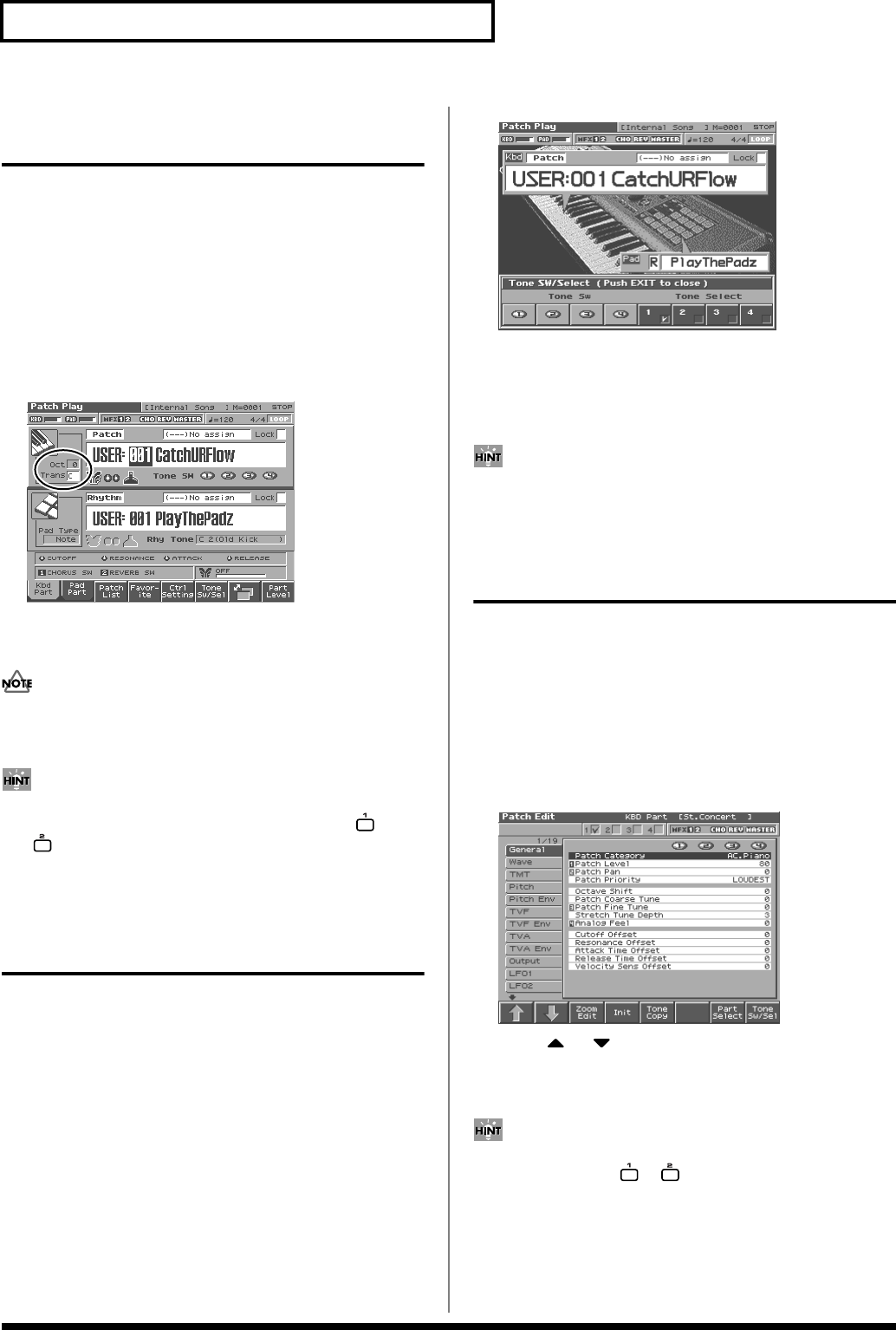
32
Playing in Patch Mode
Transposing the Keyboard in
Semitone Steps (Transpose)
Transpose
changes keyboard pitch in units of semitones.
This function is useful when you play transposed instruments such
as trumpet or clarinet following a printed score.
* Transpose applies only to the keyboard part.
1.
Press [PATCH/RHYTHM] to access the Patch Play screen.
2.
Press [1 (Kbd Part)] to move the cursor to the keyboard part.
3.
Press [7] to switch the Patch Play screen.
4.
Use [CURSOR] to move the cursor to “Trans.”
fig.02-08
5.
Either turn the VALUE dial or use [INC]/[DEC] to adjust the
Transpose setting (G–F#: -5–+6 semitones).
There is a single Transpose setting (Setup parameter) for the
entire Fantom-S. The changed setting will be remembered even
if you switch patches or performances.
If you assign “Transpose Up” “Transpose Down” as a function
to be controlled by the realtime assignable switches ([ ]/
[ ]), you can easily change the Transpose by pressing these
buttons (p. 101).
Selecting the Tones That Will
Sound (Tone On/Off)
Since a patch is a combination of up to four tones, you can switch
unwanted (tones out of the four) off and get just the sound of a
specific tone.
1.
Press [PATCH/RHYTHM] to access the Patch Play screen.
2.
Press [1 (Kbd Part)] or [2 (Pad Part)] to move the cursor to
the pad part or the keyboard part.
3.
Press [6 (Tone Sw/Sel)].
fig.02-09
4.
Press [1 (Tone Sw)]/[4 (Tone Sw)] to turn each tone on/off.
The setting will switch on/off each time you press the
button.
5.
Press [EXIT] to close the window.
If you want just one or two tones to sound in a patch, turn the
others off and store that setting on a patch. This cuts
nonessential use of the Fantom-S’s simultaneous voices.
Playing Single Notes (Mono)
When using a patch for a naturally monophonic instrument such as
sax or flute, it is effective to play in mono.
1.
Press [PATCH/RHYTHM] to access the Patch Play screen.
2.
Press [1 (Kbd Part)] to move the cursor to the keyboard part.
3.
Press [EDIT] to access the Patch Edit screen.
4.
Press [1 (
⇑
)] or [2 (
⇓
)] to select the “Solo/Porta” tab.
A screen like the one shown below appears.
fig.03-01_50
5.
Press or to move the cursor to “Mono/Poly.”
6.
Turn the VALUE dial or press [DEC] to select “MONO.”
Now you can play in mono mode.
If you assign “Mono/Poly” as a function to be controlled by the
assignable switch ([ ]/[ ]), you can easily switch between
mono/poly by pressing a button (p. 101).
Reference_e.book 32 ページ 2003年7月14日 月曜日 午後3時25分


















